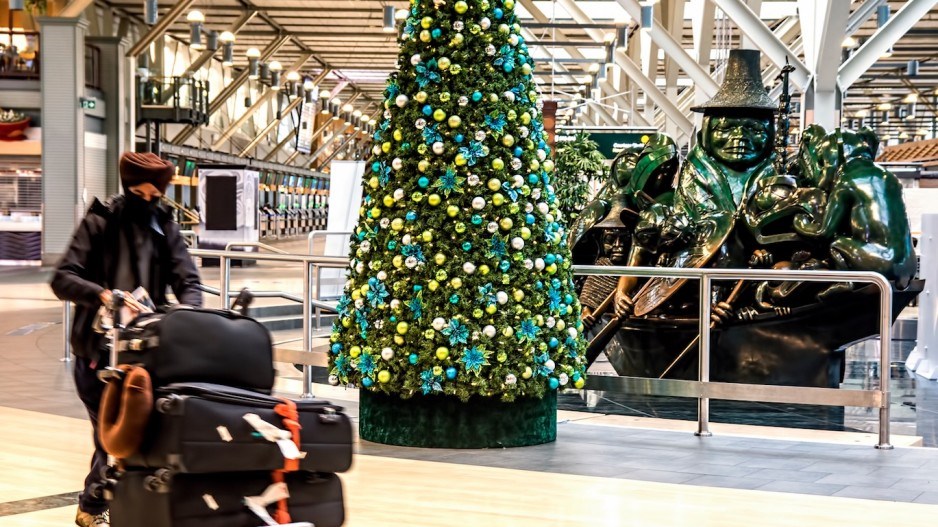The Canadian government is revising travel guidance to officially advise Canadians not to travel for non-essential reasons this holiday season, and beyond.
"Our government is officially advising Canadians to avoid non-essential travel outside Canada," Health Minister Jean-Yves Duclos told media at a December 15 press conference.
“Now is not the time to travel. The rapid spread of the Omicron variant, on a global scale, makes us fear the worst.”
The advisory, which is not yet on the government's travel advisory website, is expected to be in place for four weeks, although it could be extended.
The changed advice is significant because it may void some travel insurance polices. Restrictions in place to slow the Omicron variant's spread have already made travel more cumbersome, and unpredictable, for travellers.
Despite this, many have shown a willingness to navigate those obstacles and take vacations, or travel for business.
B.C. welcomed 97,506 Americans at border crossings in September. That was less than 18.3% of the 533,664 Americans who crossed the border in September 2019, but a more than fivefold increase over the 18,083 U.S. visitors in September 2020, according to Statistics Canada.
Major Canadian airlines carried 2.9 million passengers on scheduled and charter services in September – more than triple the number of passengers carried in September 2020, but only 42.5% of the pre-pandemic level reported in September 2019.
Vancouver Airport Authority executives earlier this week said they expected up to 45,000 people per day to pass through airport gates this holiday season, which is significantly more than last year, but about half of the total seen in 2019.
Surveys had also shown an increased willingness to travel.
A Finder.com survey in November, for example, found 22% of Canadian adults, or an estimated 6.8 million people, planned to travel in the following three months. That is up from 13.5% of Canadian adults who said in October that they planned to travel in the next three months, according to the website.
The new Canadian government guidance comes more than two weeks after the World Health Organization, on November 26, designated the COVID-19 Omicron variant as a "variant of concern," because it was not known if the highly transmissible variant could evade vaccine protection.
That prompted some countries to almost immediately put in place travel restrictions, and testing requirements.
Countries such as Israel, Japan and Korea quickly enacted a range of travel bans on foreigners.
The U.S. started to require all foreign visitors arriving by air to provide a negative COVID-19 test – polymerase chain reaction (PCR) or antigen – taken within 24 hours of arrival.
Canada announced that all foreign visitors who arrive by air, except Americans, had to provide proof of a negative PCR test after they arrive.
This is in addition to those travellers providing negative PCR tests taken within 72 hours before arrival.
That testing has been slow to ramp up, with many international arriving visitors not tested after arrival.
Duclos on December 10 said Canadian post-arrival testing capacity for foreign non-American visitors on November 30 was 11,000 tests per day. That increased to 17,000 tests per day on December 9, and Duclos said his aim was to have airports ramp up to provide 23,000 tests per day.
The tests have added delays and acted as a deterrent to visit Canada.
International visitors arriving at Vancouver International Airport take between 45 and 90 minutes to process, depending on the number of flights arriving at the time, the Vancouver Airport Authority told BIV in an email.
There have been 44 known cases of the Omicron variant so far in B.C. New daily COVID-19 infections yesterday rose above 500 for the first time in a month.




